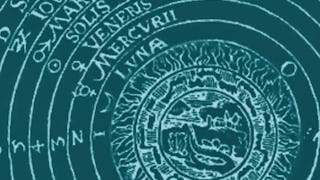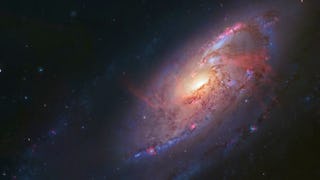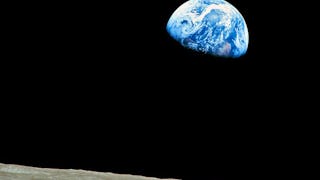Il s'agit d'un cours d'introduction à l'histoire et à la philosophie de l'astronomie, la science la plus ancienne. Nous verrons comment les hommes ont appris à poser des questions sur l'univers et, avant même l'invention d'instruments modernes comme le télescope, ont appris des choses étonnantes sur leur place dans la nature. Nous commencerons par les cultures préhistoriques qui tenaient des calendriers précis, puis nous passerons à l'époque des philosophes grecs qui ont jeté les bases de la logique, des mathématiques et de la méthode scientifique moderne. Nous examinerons ensuite les révolutions de Copernic, Galilée et Newton qui ont redéfini notre place dans l'univers. Nous découvrirons ensuite les révolutions de la physique au début du XXe siècle, qui ont redéfini nos idées sur l'espace et le temps, la masse et l'énergie. Enfin, nous discuterons de la façon dont la cosmologie moderne nous a montré que nous vivons dans un univers ancien (14 milliards d'années), dans une galaxie au sein d'un univers composé de centaines de milliards de galaxies. À la fin, nous poserons des questions qui n'ont pas nécessairement de réponses. Qu'est-ce qui a précédé le Big Bang ? Existe-t-il quelque chose en dehors de notre univers ? Qu'est-ce que la réalité ? Nous terminerons en examinant le rôle de la vie dans l'univers et en nous demandant si la Terre est le seul endroit où il y a de la biologie.



Connaître l'univers : Histoire et philosophie de l'astronomie

Instructeur : Chris Impey
6 296 déjà inscrits
Inclus avec 
(38 avis)
Expérience recommandée
Compétences que vous acquerrez
- Catégorie : Histoire ancienne
- Catégorie : Physique
- Catégorie : Science et recherche générales
- Catégorie : Science et recherche
- Catégorie : Modélisation mathématique
- Catégorie : Biologie
- Catégorie : Mécanique
- Catégorie : Sciences physiques
- Catégorie : Histoire du monde
- Catégorie : Méthodes scientifiques
- Catégorie : Histoire européenne
Détails à connaître

Ajouter à votre profil LinkedIn
42 devoirs
Découvrez comment les employés des entreprises prestigieuses maîtrisent des compétences recherchées

Il y a 8 modules dans ce cours
Ce module accueille les étudiants dans le cours et explique la structure et les devoirs de la classe.
Inclus
2 vidéos3 lectures2 devoirs
Quelle est l'histoire des débuts de l'astronomie ? De l'ère néolithique à l'ère grecque classique, nous explorons les origines de la fascination de l'humanité pour le ciel nocturne et les applications pratiques de leurs observations et découvertes.
Inclus
12 vidéos6 devoirs1 évaluation par les pairs
Dans ce module, nous discutons des contributions apportées au domaine de l'astronomie par les différentes civilisations au cours du Moyen Âge. Nous explorerons également, avec l'arrivée de la Renaissance, comment le domaine de l'astronomie a évolué grâce aux contributions de Kepler, Brahe et Galilée.
Inclus
14 vidéos6 devoirs1 évaluation par les pairs
La révolution scientifique a eu un impact considérable sur le domaine de l'astronomie. Des lois de Kepler sur le mouvement des planètes à la théorie de la gravité universelle de Newton, l'âge d'or de la science apporte de nouveaux outils et de nouvelles méthodes pour comprendre l'univers et la place que nous y occupons. En outre, nous verrons comment l'étude de l'univers nous permet de mieux comprendre l'histoire de notre planète.
Inclus
14 vidéos7 devoirs1 évaluation par les pairs
Ce module explore la création de différents outils et méthodes astronomiques utilisés pour observer et recueillir des données sur le ciel nocturne. Nous passerons ensuite à Einstein, à sa théorie de la relativité et à la façon dont nos observations modernes confirment la validité de cette théorie.
Inclus
12 vidéos6 devoirs1 évaluation par les pairs
Que sont les étoiles ? Comment sont-elles créées ? Comment et pourquoi meurent-elles ? En examinant de près la théorie atomique, les réponses à toutes ces questions et à bien d'autres sont abordées dans ce module.
Inclus
12 vidéos5 devoirs1 évaluation par les pairs
Ce module répond aux "grandes questions" : comment l'univers a-t-il été créé, quel âge a-t-il, et l'univers aura-t-il une fin ? Les structures galactiques et super-galactiques sont également examinées.
Inclus
13 vidéos6 devoirs1 évaluation par les pairs
Ce module tente de répondre à l'une des questions les plus pressantes de l'humanité : sommes-nous seuls dans l'univers ? En discutant des exoplanètes et de l'astrobiologie, nous espérons faire la lumière sur cette question.
Inclus
7 vidéos4 devoirs1 évaluation par les pairs
Obtenez un certificat professionnel
Ajoutez ce titre à votre profil LinkedIn, à votre curriculum vitae ou à votre CV. Partagez-le sur les médias sociaux et dans votre évaluation des performances.
Instructeur

Offert par
En savoir plus sur Physique et astronomie
 Statut : Essai gratuit
Statut : Essai gratuit
Dartmouth College
 Statut : Prévisualisation
Statut : Prévisualisation
University of Rochester
 Statut : Prévisualisation
Statut : Prévisualisation
The Hong Kong University of Science and Technology
 Statut : Prévisualisation
Statut : Prévisualisation
University of Amsterdam
Pour quelles raisons les étudiants sur Coursera nous choisissent-ils pour leur carrière ?




Avis des étudiants
38 avis
- 5 stars
76,31 %
- 4 stars
15,78 %
- 3 stars
2,63 %
- 2 stars
2,63 %
- 1 star
2,63 %
Affichage de 3 sur 38
Révisé le 12 mars 2024
popularized science, made it so easy for everyone to learn, and motivated to learn more...
Révisé le 21 mars 2025
An excellent course with important information clearly explained.
Révisé le 13 janv. 2023
Professor Impey is outstanding in teaching this course, as he displays his generosity to share his amazing knowledge of the astronomy field. Thank you so much for such an enriching experience.

Ouvrez de nouvelles portes avec Coursera Plus
Accès illimité à 10,000+ cours de niveau international, projets pratiques et programmes de certification prêts à l'emploi - tous inclus dans votre abonnement.
Faites progresser votre carrière avec un diplôme en ligne
Obtenez un diplôme auprès d’universités de renommée mondiale - 100 % en ligne
Rejoignez plus de 3 400 entreprises mondiales qui ont choisi Coursera pour les affaires
Améliorez les compétences de vos employés pour exceller dans l’économie numérique
Foire Aux Questions
L'accès aux cours et aux devoirs dépend de votre type d'inscription. Si vous suivez un cours en mode audit, vous pourrez consulter gratuitement la plupart des supports de cours. Pour accéder aux devoirs notés et obtenir un certificat, vous devrez acheter l'expérience de certificat, pendant ou après votre audit. Si vous ne voyez pas l'option d'audit :
Il se peut que le cours ne propose pas d'option d'audit. Vous pouvez essayer un essai gratuit ou demander une aide financière.
Le cours peut proposer l'option "Cours complet, pas de certificat" à la place. Cette option vous permet de consulter tous les supports de cours, de soumettre les évaluations requises et d'obtenir une note finale. Cela signifie également que vous ne pourrez pas acheter un certificat d'expérience.
Lorsque vous achetez un certificat, vous avez accès à tous les supports de cours, y compris les devoirs notés. Une fois le cours terminé, votre certificat électronique sera ajouté à votre page de réalisations. Vous pourrez alors l'imprimer ou l'ajouter à votre profil LinkedIn. Si vous souhaitez uniquement lire et visualiser le contenu du cours, vous pouvez l'auditer gratuitement.
Vous pouvez prétendre à un remboursement intégral jusqu'à deux semaines après la date de votre paiement ou (pour les cours qui viennent d'être lancés) jusqu'à deux semaines après le début de la première session du cours, la date la plus tardive étant retenue. Vous ne pouvez pas obtenir de remboursement une fois que vous avez obtenu un certificat de cours, même si vous terminez le cours pendant la période de remboursement de deux semaines. Consultez notre politique de remboursement complète.
Plus de questions
Aide financière disponible,

